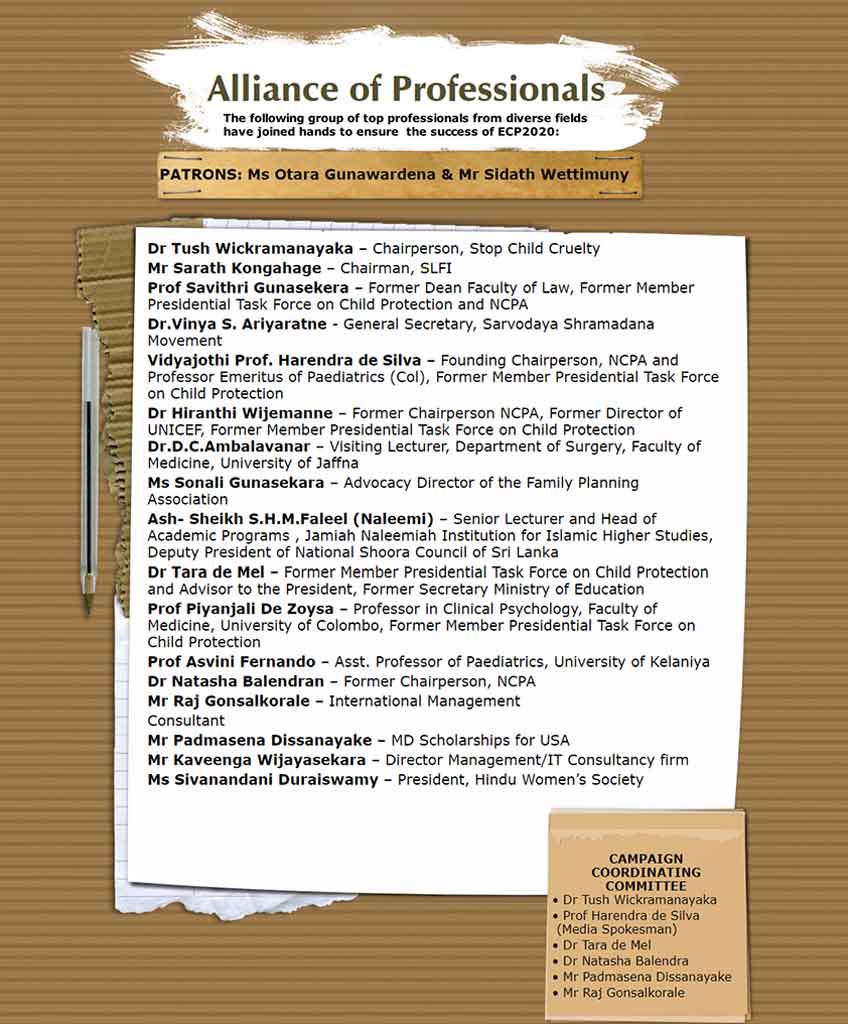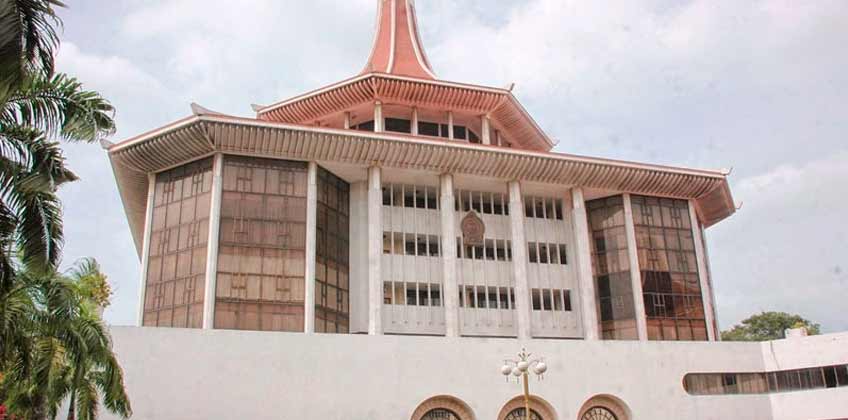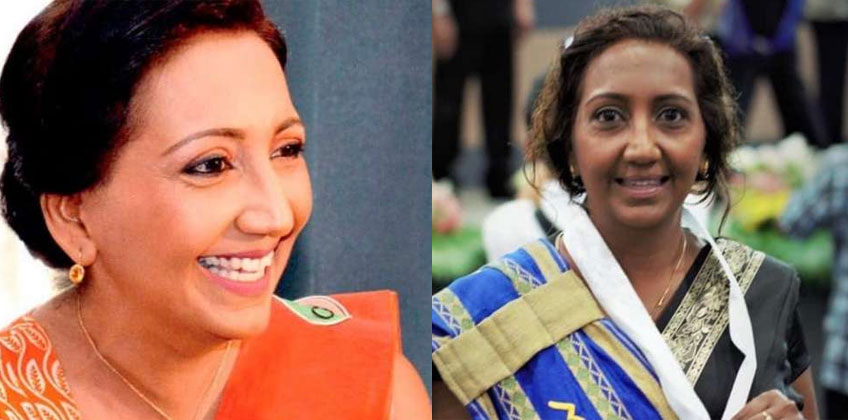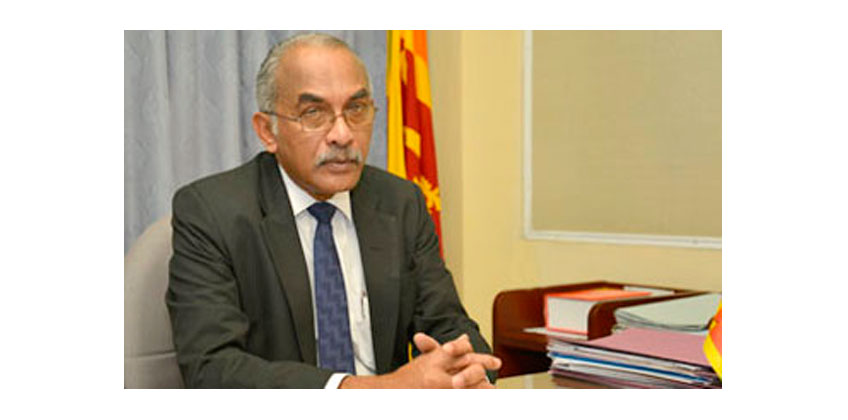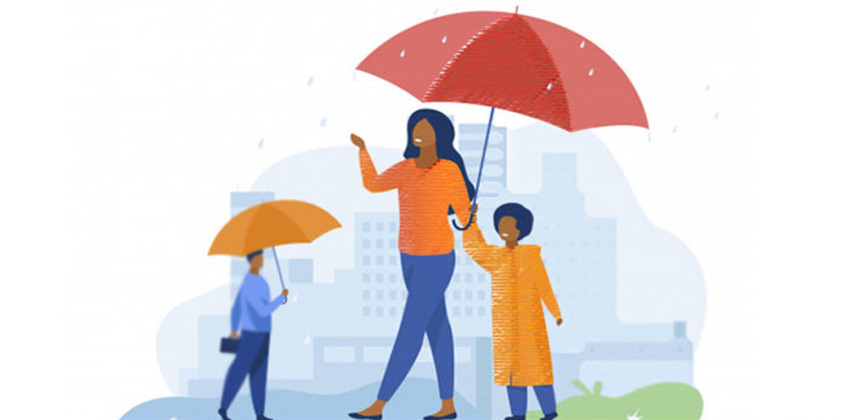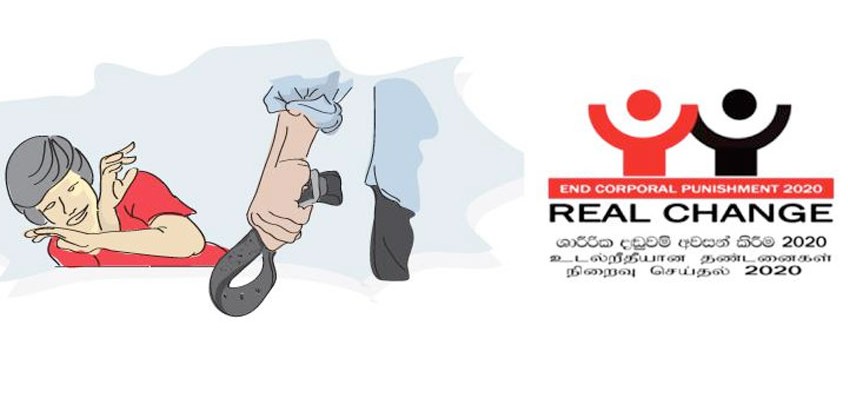
Stop Child Cruelty, a Colombo-based social organisation is spearheading the recently launched campaign ‘End Corporal Punishment in Sri Lanka – Vision 2020′ that is focused on ending corporal punishment in schools by 2020. Stop Child Cruelty is headed by Dr. Tush Wickramanayaka, a Sri Lankan/British dual citizen. She is a General Physician of 26 years experience and a mother of two children. After living and working in UK all her adult life, she returned to the sunny isle with her young family to let them enjoy the culture and values of Sri Lanka.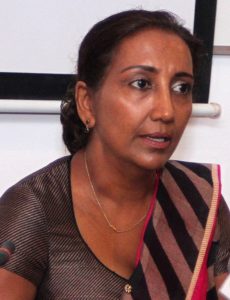
Ever since her children enrolled in an International School in 2010, she has strived to rectify the recurring issues with child protection. She is alarmed by the callous disregard of the rights of children in Sri Lanka and how the police, education authorities and other agencies consider child cruelty an acceptable practice. “Every child is precious. No child should be cruelly bullied into submission’. Tush hopes her own personal experiences can help other victims. , a Colombo-based social organisation focused on ending corporal punishment in schools by 2020. As the Chairperson of Stop Child Cruelty, Dr. Tush Wickramanayaka tells Global Sri Lankan in an interview, why it is necessary to launch an awareness campaign like ECP2020 and how crucial it is to ensure its success and help pave the way for the well-being of all children in Sri Lanka.
What is the current campaign that has been launched to end corporal punishment in Sri Lanka?
End Corporal Punishment in Sri Lanka – Vision 2020 (ECP2020) is a unique campaign launched on 1 September with the aim of eliminating corporal punishment in schools. The campaign will highlight the dangers of physical harm and violence meted out to school children and the severe psychological consequences they could face in adulthood. ECP2020 will look at training of all personnel in alternative disciplinary procedures and ways of enforcing existing laws measures to protect children. The campaign is organized by Stop Child Cruelty (SCC) in collaboration with the Presidential Secretariat, ‘Daruwan Surakimu’ and the Sri Lanka Foundation Institute and is supported by leading personalities in the capacity of Patrons, as well as an Alliance of Professionals.
How can you measure the success that has been achieved so far by groups such as yours in creating awareness of/reducing the level of corporal punishment in Sri Lanka?
Although there have been some improvements made by government entities such as circulars issued by the Ministry of Education, corporal punishment not only continues to prevail but is rampant in schools. A study on ‘Child Disciplinary Methods Practiced in Schools in Sri Lanka’ carried out by a team of top professionals headed by Prof. Harendra de Silva found that 80% of students experienced at least one episode of corporal punishment and 53% suffered physical abuse within the previous term of school. A report by UNICEF revealed that 73.4 % of children between 1 and 14 were subjected to corporal punishment in Sri Lanka.
Can you tell us about the activities that are planned to be held this month?
The highlights of the ECP 2020 campaign is an online petition and collection of signatures that will focus on ‘The Pentagon Proposal’ to secure a commitment from five key stakeholders responsible for child protection to work collectively to end corporal punishment. The unique Proposal will be handed over to President, Maithripala Sirisena, relevant Ministries and Institutions. The series of activities planned by the organisers this month includes a Media Conference on 25 September and will culminate with ‘A Walk for Real Change’ by people from all walks of life in support of ECP2020 on 30 September. For more details on this landmark initiative visit http://www.stopchildcruelty.com/
What are your immediate goals, and the long-term objectives that must be achieved?
Our immediate goal is to end corporal punishment in schools by 2020 while the long-term objective is to end corporal punishment in all settings and environments by 2030.
Is corporal punishment used as a disciplinary tool across all segments and strata of society or is it a cultural problem limited to certain groups or classes?
It is prevalent in all sectors but noticeably less in Muslim communities. The NCAP study shows that there were certain factors associated with higher use of punishment. For instance, boys experienced more corporal punishment, physical abuse, and psychological aggression. And, students from the estate sector experienced more punishment. On the other hand, being from the district of Galle, and being of Muslim ethnicity appear to protect students from experiencing punishment. The most common reasons for being punished were non-completion of homework, not adhering to the school dress code, and love affairs. As such, one of the recommendations made in the study is to strengthen the existing inadequate student counselling system. Another proposal is to set stringent guidelines to eradicate the home work-based, achievement-driven and competitive atmosphere that widely prevails in Sri Lankan schools.
Corporal punishment is often done behind the scenes, at home, out of sight. How is it possible to find out about such cases to be able to successfully enforce a ban or even existing laws?
This is why the campaign will be implemented in different phases with Phase 1 being dedicated to ending corporal punishment in all schools by 2020 and ensure that a total ban on corporal punishment is institutionalized and implemented. The key goal of the next phase is to regulate all international schools by the Ministry of Education, and then follow up with circulars issued to all schools to ensure that Principals and teachers are aware of the rules. Another stage in this process would be to appoint Child Protection Officers in every school and make all parents aware of the various steps taken and regulations and penalties that will be levied on offenders. This can be done through a promotional campaign featuring educational material, and distributed through schools targeting all school entrants in 2020. Once corporal punishment is banned in schools, a controlled/public environment would help bring about a change of attitudes within homes too.
There are many shades of opinion on corporal punishment covering the pros and cons, and its benefits in certain instances, ill effects and impact on children. With such diverse viewpoints isn’t it an uphill or even an impossible battle that you are facing to achieve your goals?
Every journey is impossible if you think it is difficult. That does not mean we should never even attempt to start the journey. There are over 250 studies proving the negative consequences of corporal punishment but not a single one to-date that shows positive outcomes. The members in the Alliance of Professionals who have dedicated much of their careers to working in child welfare have for the first time come together to work for real change. The historic Pentagon Proposal will put the onus and ownership on top five government ministries to work together to bring about this change. We are the only international recognised organisation committed to ending corporal punishment in Sri Lanka. Further, the ECP2020 campaign has already attracted global recognition from organisations such as Global Initiative to End All Corporal Punishment of Children. In the words of Maya Angelou “nothing will work unless you do”.
What are the international conventions that address corporal punishment and how does Sri Lanka fit into the wider international strategy to deal with this issue?
A number of international conventions and charters had been launched as part of the drive to eliminate corporal punishment. The UN Charter of 1945 declares that ‘All human beings are born free and equal in dignity and rights’ while an article in the UN Convention on the Rights of the Child (UNCRC) which was established in 1991 describes corporal punishment as “any punishment in which physical force is used and intended to cause some degree of pain or discomfort, however light”. The International Covenant on Civil and Political Rights (ICCPR) – Act 56 of 2007 states that every child has right to be protected from maltreatment, neglect, abuse or degradation’, and also the UN’s Sustainable Development goals for 2030 highlight the need to end the ‘abuse, exploitation, trafficking and all other forms of violence and torture against children’.
In the past, Sri Lanka had promulgated laws and issued Education Ministry Circulars to prohibit corporal punishment in schools. Article 11 of Sri Lanka’s constitution states that “No person shall be subjected to torture or to cruel, inhuman or degrading treatment or punishment and Article 12 (1) states that “All persons are equal before the law, and are entitled to the equal protection of the law”. The Penal Code 308 A is quite clear on this issue as it states that whoever is in custody, charge or care of any person under eighteen years of age, wilfully assaults, ill-treats, neglects, or abandons such person in a manner likely to cause him suffering or injury to health commits the offence of cruelty to children.
In 1991 Sri Lanka ratified the United Nations Convention on the Rights of the Child (UNCRC). But the problem still goes on unabated. Several victims have suffered grave physical harm and some have even been hospitalised. In February 2018 UNCRC issued a red alert to Sri Lanka for failing to ban Corporal Punishment.
How many countries have joined the list of nations that have banned corporal punishment and what prevents Sri Lanka from joining this group of countries?
152 countries have signed the UNCRC declaration while 131 countries have banned corporal punishment in schools and 52 countries have banned it in both homes and schools. Despite several pledges Sri Lanka has given at international fora it still does not belong to the group of 131 nations that have banned corporal punishment.
How can Sri Lankan expatriates and professionals working overseas support this campaign?
We welcome Sri Lankans living and working overseas to join us and help ensure the success of ECP2020 by participating in the online petition, forum and chat sessions that will be announced shortly, and follow our progress via social media – Facebook, Twitter and Instagram. The Sri Lankan expatriates are an important segment who can also encourage and influence their families in Sri Lanka to support this initiative to create a safer and happy future for the children of Sri Lanka.
